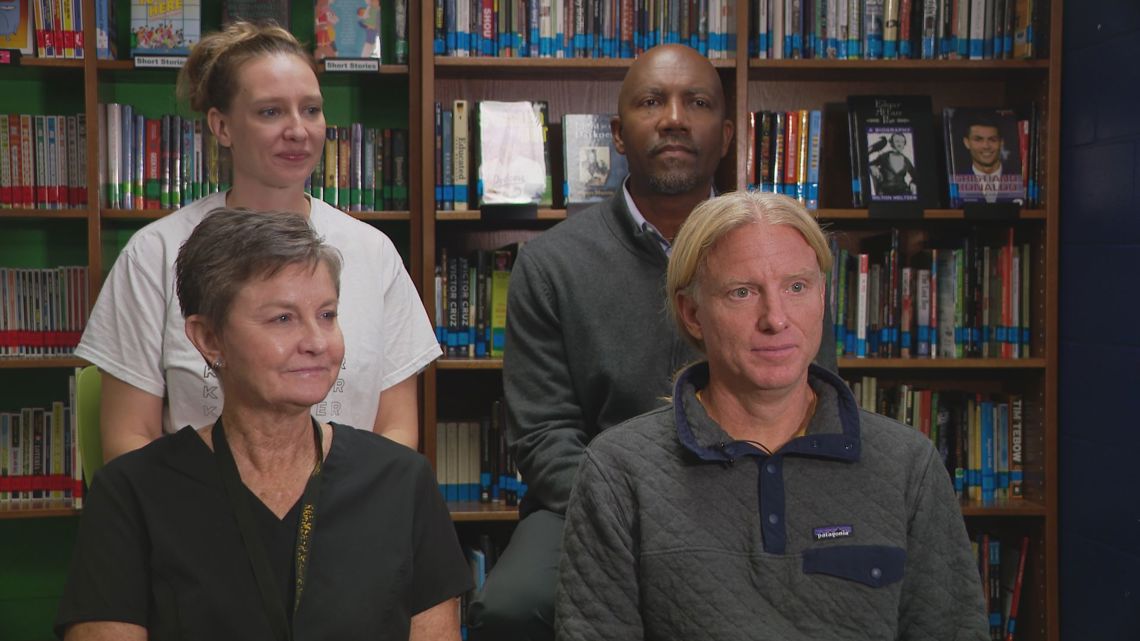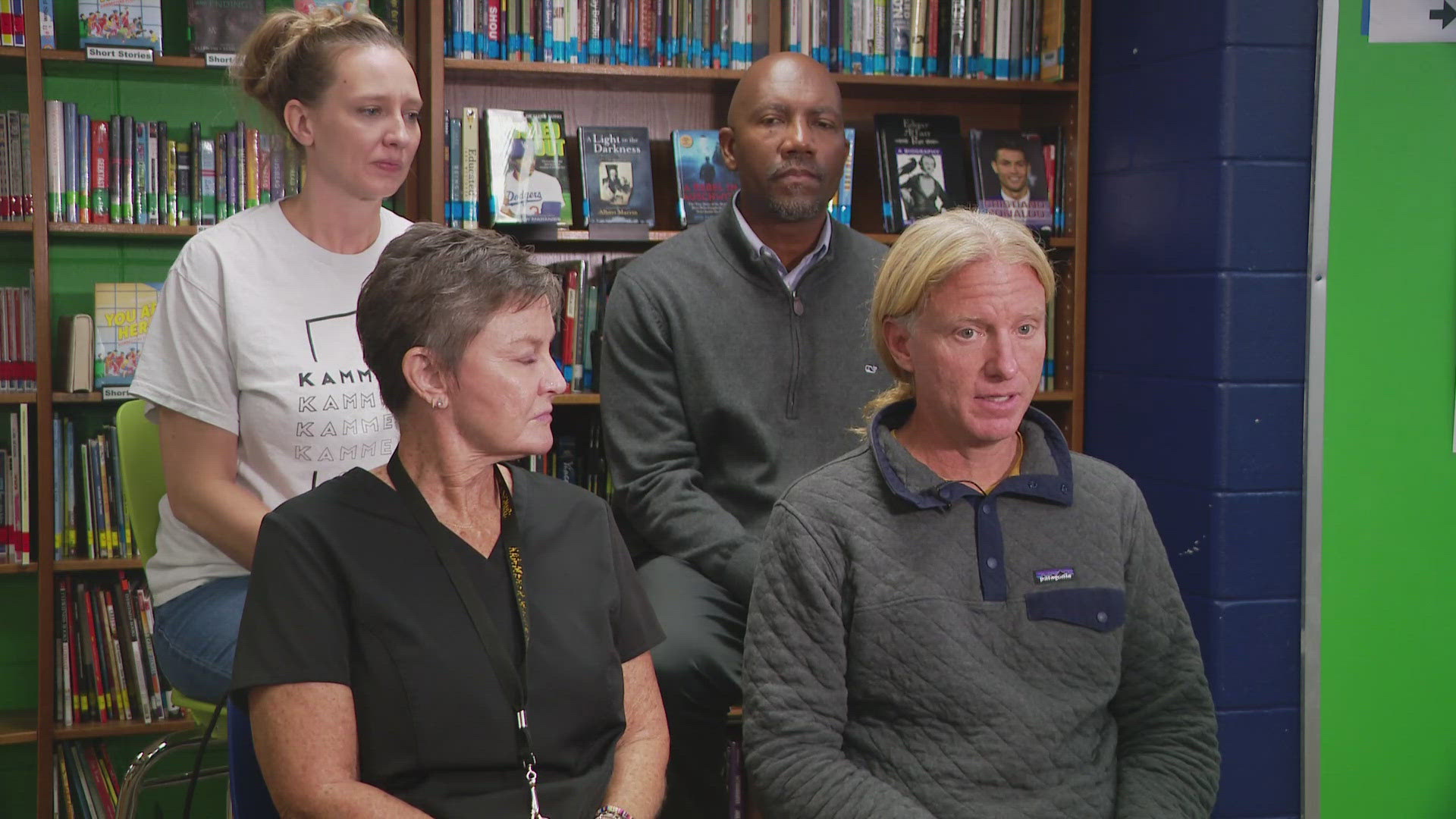LOUISVILLE, Ky. — It was 2:30 p.m. on Tuesday, when the call went over the staff radios at Kammerer Middle School. A student was in distress on the field.
By the time, 6th Grade Assistant Principal Brian Aulick and Safety Administrator Jack Miller arrived, 11-year-old Noah Mattingly was hardly breathing, not alert, with very little pulse.
Nurse Stephanie Speer arrived moments later, called for an AED, and began sternum rubs, a painful stimulus used by emergency medical personnel to assess a patient's neurological status and brain function.
"By the time we got back out, that's when there was no pulse," Aulick said.
"I had my stethoscope and I could not hear a heartbeat. So, that's when we started CPR," Speer said. "We did rescue breathing and then Mr. Miller came and applied the pads and we used the AED. After we did the first shock, it said to continue CPR."
CPR lasted about 7 minutes, with four staff members rotating compressions. Shannon Pierce, the in-school security monitor was one of them.
"It was pretty scary. I'm not even going to pretend like it wasn't," Pierce said.
"Seeing his eyes roll back and not breathing at certain points, not having a pulse, blue, everything that everyone describes of a dead body. I mean, we had that.," Miller said.
"There was a couple minutes there where, I mean, I believe he wasn't with us," Aulick said.
Speer's been a nurse for 41 years, and says she's never performed CPR on an 11-year-old on a playground.
"Before EMS arrived, we had brought him back," Miller said. "So, we were relieved, and we all just took a minute after that and collapsed down. I know I did. I had to take just a seat. And then you get teary eyed, and everything else emotionally happens at that point."


"It's just a lot. Going back and talking about it and reliving it and and seeing it in your head, it doesn't go away," Pierce said. "And it's hard to come back the next day to work and just be able to go through like nothing happened. You know, there were some children that that witnessed it."
"The teamwork was phenomenal, and showing up, not really knowing what we had at the time, and then to regroup, come together and make this thing work. Was was fantastic, and couldn't be more proud of them," Miller said.
"I have three students in JCPS, and one of the things that I continually think about is, I just hope they have a team at their school that would do the same thing for them," Aulick said.
Aulick says Noah's lucky his heart stopped when it did.
"Because if that would have happened on a bus or at home in the middle of the night, we wouldn't have him," Aulick said.
"We wouldn't have the special kid who comes to see me every single day at noon, and he's just a joy. I love him, and when I saw that it was him. I was like, Oh no, not Noah!" Speer said.
She visited his family that night at Norton Children's Hospital.
"I went to the hospital Tuesday night because I had to drop off the AED so that the cardiologist could analyze the strip. And [his parents] were just so gracious," Speer said. "Both of them cried. And then, I went over and talked to Noah, and I said, 'it's your favorite Nurse, Nurse, Stephanie. I can't wait for you to get back to school.' And he said, 'I just want to go home' But that was wonderful that he was awake and talking and sort of knew what was going on."
"He wanted to know who electrocuted him," Miller laughed.
Noah was diagnosed with a rare birth defect, called Wolff-Parkinson-White syndrome, a condition his family had no idea he had.
"A lot of the arrythmia disorders like Wolff-Parkinson-White, they just lay in waiting until the perfect set of circumstances. He was exercising, that electricity went through the extra channel in his heart at the perfect time, jumpstarted an abnormal rhythm that quickly deteriorated into fibrillation. If it's not aborted with an AED and CPR, then that leads to death," Dr. Adam Skaff, a pediatric cardiologist with Norton Children's and co-medical director of Project ADAM said.
Noah underwent a successful surgery Wednesday to help fix the issue. His parents said he had guardian angels that day.
"They will be forever special in my heart to me. They saved my baby," Christina Mattingly, Noah's mom said.
"If they hadn't done what they did, Noah wouldn't be here. They were there when he needed them the most," Anthony Mattingly, Noah's dad said.

